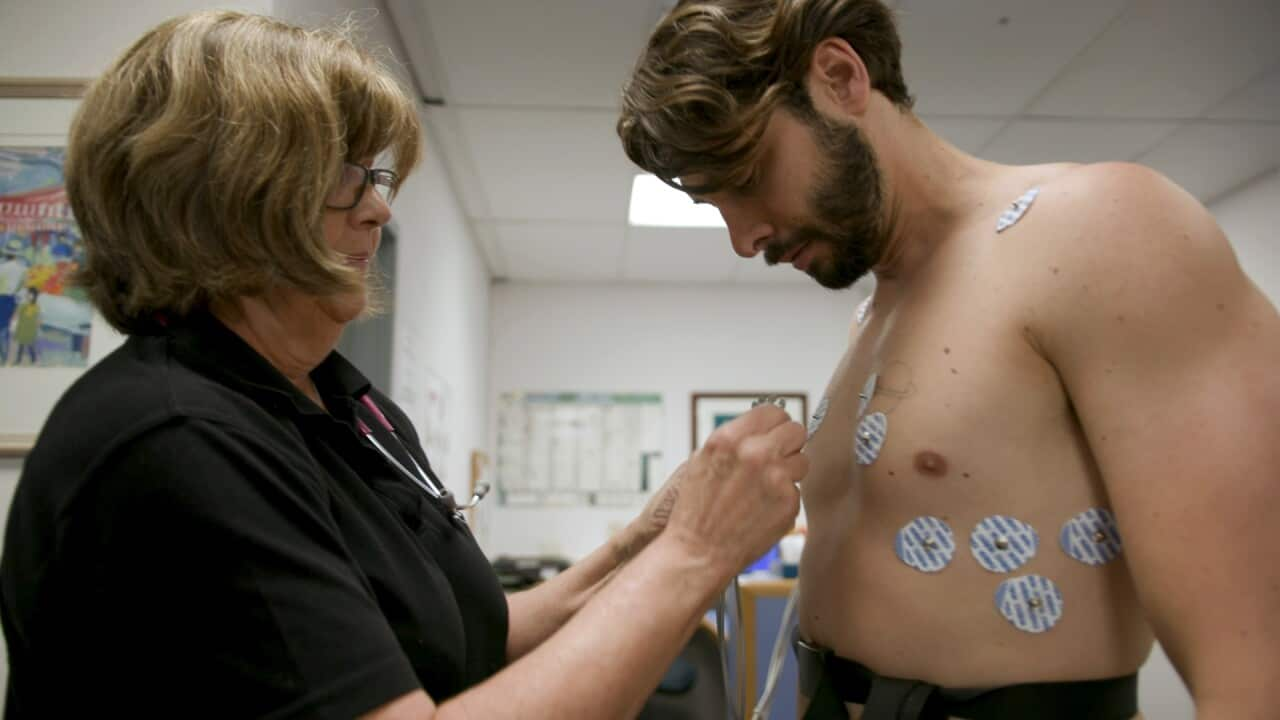There's no shortage of scientists who will confidently say we've pulled back the veil on aging – that we understand what causes it and what the future of anti-aging treatments might look like in the coming decades.
Exponential mega-financing is fuelling frontier science in labs around the world and with each subsequent research paper there are ever-increasing flocks of laypeople, bio-hackers and 'long-life advocates' imbibing and spruiking this treatment or that supplement in the hope it will slow or maybe even reverse aging.

Source: The Feed
The fear of death is a powerful motivator. This might seem bleedingly obvious, but the point was truly driven home as I embarked on a deep dive into the anti-aging industry – or longevity industry, as it prefers to be called.
And look, if it's fear of death that motivates you to eat better, exercise more and invest in your overall wellbeing, then all power to you. I generally err on the side of free choice when it comes to what people do to their bodies.
But I encountered many therapies and medications in this investigation I would personally never consider taking, even in my most cavalier disposition. In this space, there is no shortage of self-experimenters who will go to any lengths to increase health-span and lifespan through unproven science, holy grail substances and fad treatments.
Instead, I embarked on a 12-week experiment using treatments available to everyone today, to see if I could alter some of the key biomarkers for longevity within my body. This included cryotherapy, infrared sauna, intermittent fasting, regular exercise, and supplementation.

Darren Marra inside a cryosauna. Source: The Feed
One of the experiment's main yardsticks was the level of a naturally occurring co-enzyme called nicotinamide adenine dinucleotide, or NAD for short. Harvard Professor David Sinclair told us he believes boosting one's NAD levels – which decline with age – could be key to slowing aging.
Although the jury is still out, some scientists, including Sinclair, are developing drugs to boost NAD, whilst others are going down the path of supplementation.
And here's where the picture becomes a tad murkier.
Whether it's through the US pharmaceutical regulator, the FDA, or the Australian equivalent, the TGA, the burden of proof with drugs is high. They're considered unsafe until proven safe.
However, with supplements, the burden of proof is low. They're treated as safe until proven otherwise and because they fall into the low-risk category they're subject to little – if any – scrutiny by regulators for efficacy and safety.
What we learned is it's quite easy for foreign supplements makers to have a presence in Australia without the knowledge of the TGA. This means they could very easily include prescription-only medicines in their products with no oversight from Australian customs, health practitioners or regulators.
Toxicologist Ian Musgrave from the University of Adelaide told us it's very much "buyer beware" when purchasing supplements online, for this very reason.
Those controversies aside, it's evident that the game-changing breakthrough that might end aging is still many years away, despite what some in this space might tell you. There is no pill that can beat or replace a healthy lifestyle. At least not yet.

Darren Marra being pushed to his limits. Source: The Feed
But I will say this: about six weeks into my longevity experiment I woke up one day and realised that I felt good. I mean, really good. I was beaming with energy. I was thinking clearly. I felt charismatic and, dare I say, inspired. I can't say for certain which, if any, of the treatments was behind this nor whether it was simply the so-called placebo effect playing a role.
Regardless, simply being on the journey was fuelling a positive feedback cycle, whereby I wanted to be increasingly healthier. Was any of it going to make me live longer? Maybe. Was it making me want to live longer? Definitely. And if that inevitably leads to longer life, then I'd say mission accomplished.










